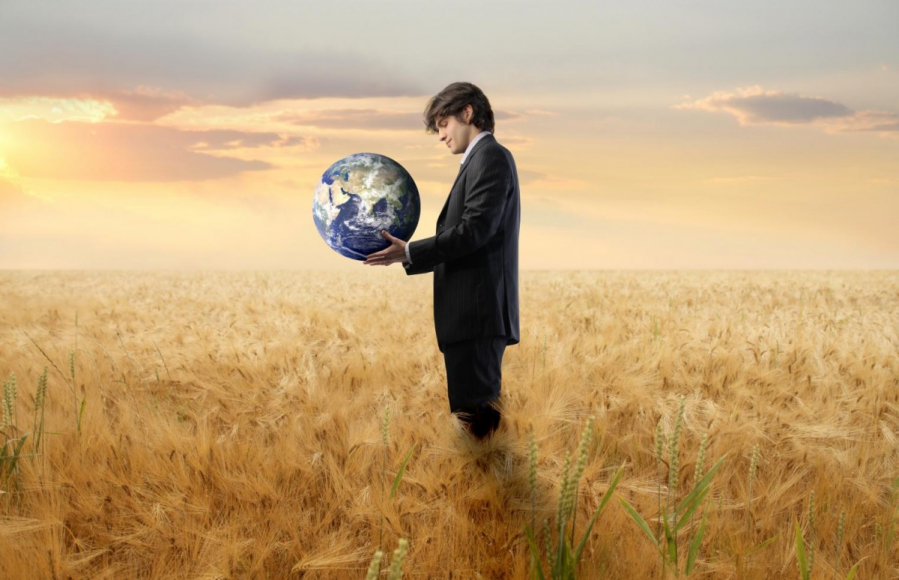Environmental sustainability is simply part of doing business in a climate change world. From reducing energy usage and water waste to improving recycling and reuse efforts, companies large and small have implemented tactics and strategies to reduce their carbon footprints.
But with consumer pressure mounting and new research suggesting that a new level of urgency is needed to combat climate change, many companies are working harder than ever to future-proof their businesses and the world. Environmental sustainability is becoming business sustainability and several companies are making incredibly smart and savvy investments—investments with wide-ranging positive impacts.
In the last few months, several companies’ investments and cutting-edge innovations have caught our eye. Here we bring you some of those stories to not only honor their work, but also inspire your own efforts.
1. General Mills
The Investment: Regenerative Agriculture
Food manufacturing giant General Mills is embarking on a regenerative agriculture journey, committing to implementing regenerative practices on 1 million acres of farmland by 2030.
In a recent press release, General Mills said that partnerships with farmers and suppliers in its key growing areas are a central part of the strategy.
“We have been feeding families for more than 150 years and we need a strong planet to enable us to feed families for the next 150 years,” Jeff Harmening, General Mills Chairman and CEO, said in the release. “We recognize that our biggest opportunity to drive positive impact for the planet we all share lies within our own supply chain, and by being a catalyst to bring people together to drive broader adoption of regenerative agriculture practices.”
The company is also granting $650,000 to Kiss the Ground, a non-profit organization that provides on-farm training and education to farmers and growers, teaching them how to use soil health best practices to increase profitability and decrease costs.
2. Chobani
The Investment: Easier-to-Recycle Packaging
Not long ago, famed Greek yogurt maker Chobani released a new packaging design. The retro-meets-modern look and feel aimed to distinguish the product from a growing pack of competitors. Now, they’re standing out because of their recent commitment to making it easier for yogurt lovers to recycle packaging components.
According to Waste360, Chobani recently joined the How2Recycle Label Program. The move means the addition of easy, step-by-step recycling instructions on each of its packages.
From a business perspective, this allows Chobani to effectively increase transparency between product and consumer, something consumers want more of. In addition, the company is helping consumers take a more active role in sustainability practices, as well as improving its carbon footprint across the product life cycle.
3. Levi’s
The Investment: Hemp Clothing Line
Levi’s has been an American clothing icon for more than 150 years. But the company known for its cotton denim creations has created a new line of clothing that feels “just like cotton,” but is made entirely from hemp.
According to Environmental Leader, hemp is a sustainable material that requires less water and land to grow. However, hemp hasn’t been a favorable fabric among clothing manufacturers because of its coarse texture. But Levi’s has found an innovative way to make a previously rough fabric soft to the touch while reducing water use by 30%.
From fabric to eyelets, stitching and core, every material used in the manufacturing of the new Levi’s hemp line is entirely recyclable, Environmental Leader reported. And this move is effectively reducing the company’s carbon footprint, generating a new revenue stream, and satisfying consumers with an eco-friendly clothing option.
4. Carlsberg Group
The Investment: An Increasing Commitment to Sustainable Business Practices
In 2018, the global beer brewer Carlsberg Group accelerated its topline growth, improved margins, delivered a strong cash flow, and reduced its debt. How? According to Environmental Leader, the company said its sustainability initiatives played a major role.
Carlsberg Group’s latest sustainability report states the company reduced water consumption by 9% since 2015 and increased its global use of renewable energy to 46%. In addition, the company has also introduced innovative packaging that reduces the amount of plastic used by 76%. The “Snap Pack” holds cans of beer together without the need for a plastic cage. The company estimates using Snap Pack will reduce its annual total use of secondary plastic by more than 1,200 metric tons.
5. Smithfield Foods
The Investment: Engaging the Supply Chain to Improve Feed Grain Sustainability
Five years ago, Smithfield Foods, the world’s largest hog producer and pork processor, was challenged by Walmart to improve the sustainability of its feed grain supply.
At that time, the company committed itself to working with grain farmers to optimize fertilizer and build soil health on 75% of land area—about 450,000 acres—where Smithfield directly sources its grains. Fast forward to today, and Smithfield has exceeded its goal, improving fertilization practices on almost 560,000 acres of land.
From partnering with agronomists who work directly with grain farmers to purchasing seed from reliable sources and technology at a lower cost, Smithfield has reportedly developed lasting business partnerships with farmers while simultaneously giving back to the earth.
Smithfield isn’t stopping there. Its next initiative is to reduce greenhouse gas emissions by 25% by 2025, which the company says is the “first commitment of its kind from a protein company.”
Read: How to Create a More Sustainable (and Resilient) Supply Chain: 4 Steps to Take & Missteps to Avoid
6. Amazon
The Investment: “Shipment Zero”
Amazon has set the modern standard for all businesses, putting consumers and their buying experience truly at the center of its business model. In fact, it’s reported that the retail-tech giant ships out between 1.6 and 3.3 million packages each day. But at that rate, the company’s carbon footprint—from packaging materials to transportation—is growing more astronomical each day.
But Amazon is committed to reducing that impact, recently pledging to reach 50% net-zero carbon by 2030. They’re calling the initiative “Shipment Zero,” according to a recent company blog post by Senior Vice President of Worldwide Operations, Dave Clark.
Shipment Zero is only one of Amazon’s many sustainability initiatives. Others include a shift away from bulky cardboard to light-weight mailers and the Frustration-Free Packaging initiative. In addition, the company has a long-term goal of powering its global infrastructure with 100% renewable energy.
As consumers become increasingly engaged and activated around the sustainability challenges our world is facing—and as Amazon continues to set the standard for customer experience—the company has clearly established its business case for sustainability.
7. Wendy’s
The Investment: Solving the Single-Use Plastics Problem.
Mmm… Frosties. Frosties and fries. Fries and Frosties. Wendy’s is amazing for a lot of reasons—but, Frosties (and fries) aside—the fast-food chain announced that it's expanding its sustainability commitment by tackling single-use plastics.
According to Environmental Leader, Wendy’s recently announced that its committed to finding and funding solutions to the single-use plastics problem. Like many other food and beverage companies, Wendy’s is looking for ways to improve its packaging to reduce the amount of plastic used, help save the planet, and bolster its business for the long-term.
As part of the announcement, Wendy’s rolled out its new Squarely Sustainable initiative, which includes four pillars:
- Use less. Reduce unnecessary materials across all packaging.
- Use better. Seek certified, sustainable materials where possible.
- Spark action. Identify consumer-facing actions that drive change.
- Engage partners. Work with others to find solutions to important issues.
Business Sustainability, Meet Environmental Sustainability
As demonstrated by the above companies and their respective initiatives, go beyond environmental sustainability. From regenerative farming to step-by-step recycling instructions, manufacturing clothing from sustainable sources and reducing product waste, you can see they’re paying attention to consumers, growing environmental challenges, and the future needs of the world—and they’re taking action to ensure they leave the world better than they found it.
To learn more about how Antea Group may be able to help, check out our Sustainability Consulting Services.
Want more news and insights like this?
Sign up for our monthly e-newsletter, The New Leaf. Our goal is to keep you updated, educated and even a bit entertained as it relates to all things EHS and sustainability.
Get e-NewsletterHave any questions?
Contact us to discuss your environment, health, safety and sustainability needs today.





